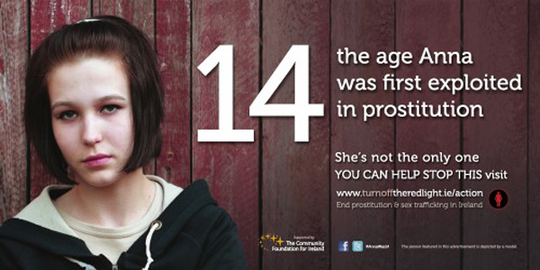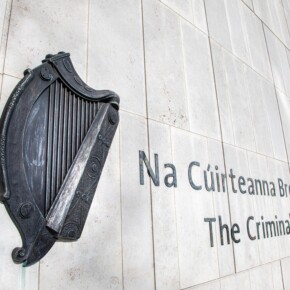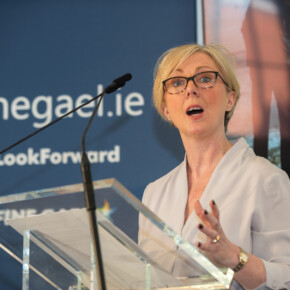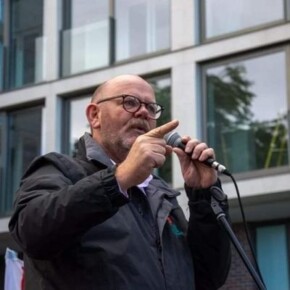Campaign calls for law change on prostitution
Dublin People 25 Aug 2012
A CAMPAIGN that addresses prostitution in Ireland is calling on the Government to make Ireland’s vice laws similar to those in Sweden where people who pay for sex are criminalised before the prostitute.
The call follows the recent launch of the Turn Off the Red Light’s
‘#AnnaWas14’ campaign that highlights the legislative change that Ireland needs to make to address the problems of trafficking and exploitation.
It seeks to bring the issue to the attention of the public by using the hard-hitting story of a 14-year-old girl who was forced into prostitution.
The campaign stepped up its awareness strategy recently after it displayed huge billboard adverts across the country.
Speaking about the launch of the campaign, Labour MEP Emer Costello said an overhaul of Ireland’s legislation was long overdue, particularly due to the dangers posed by the online sex industry.
Ms Costello, who is also a member of the European Parliament’s new Special Committee on Crime, said:
“In recent years European legislation has moved the emphasis away from targeting the unfortunate women caught up in prostitution and towards the customers who exploit them.
“This approach was pioneered by Sweden in 1999 and it has since been adopted by several other European countries, including Iceland and Norway.
?
She added:
“The Government recently published ground-breaking legislation to tackle corruption which, if passed, will make Ireland a world leader in tackling political corruption. The public consultation phase of this process ends this month and I would urge anyone who believes in the need for progressive legislation to have their say.
?
Ms Costello said she would personally submit recommendations to Minister Alan Shatter that will call for a new system of prosecution based on the Swedish model.
Meanwhile, Ruhama, a Northside based women’s support group, has reported an 18 per cent increase in the number of women accessing its services.
Ruhama assisted 200 women from 36 countries last year.
Ninety-one of these were the suspected victims of human trafficking and 22 were new cases. A total of 41 women were also assisted through their street outreach work.
Ruhama’s chief executive, Sarah Benson, said the experiences of women today echo those reported by others every year for the last 22 years.
“We hear about physical and sexual assault, degrading and humiliating verbal abuse, hyper-vigilance and constant tension, feelings of isolation
?? from other people and from the rest of society
?? panic attacks, depression, and suicidal feelings,” Ms Benson said.
She added: “Most people in society know that prostitution is harmful; no parent this week, as they sit with their children discussing CAO offers, will be considering prostitution as a career option for their son or daughter. The over-reliance on the immigration system to detect victims of trafficking and the fact that most victims are forced to make their own escape from traffickers if they are to access help, results in a relatively low number of victims receiving assistance in Ireland.
?











